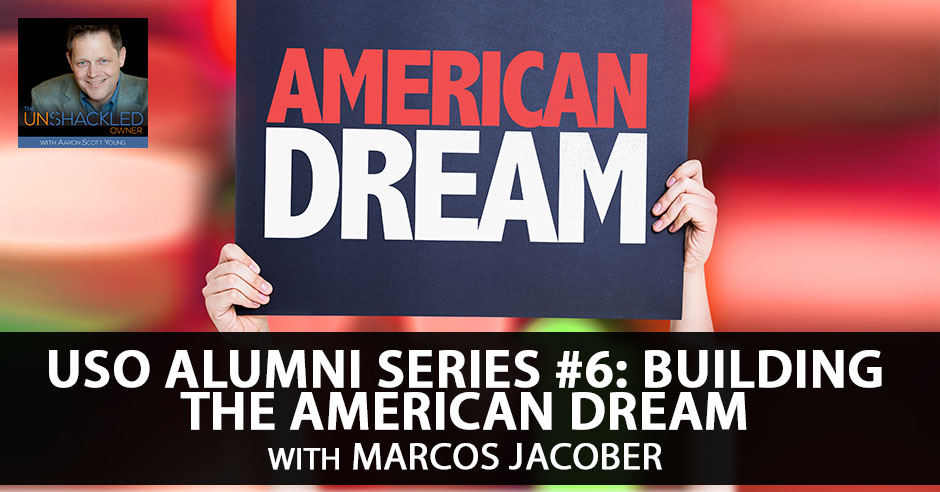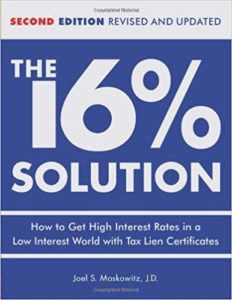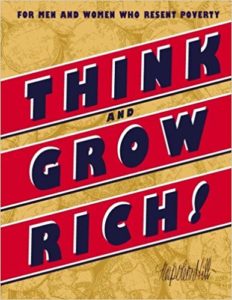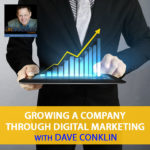
Sharing his journey from swimming against the hard currents of life in Brazil to buying that American Dream, Marcos Jacober – teacher, speaker, and life hacker – shows how to be a truly unshackled owner, someone who goes out and does something out of the box. Just a year and a half after arriving in the United States, he has his own restaurant with thirteen employees, and Marcos talks about how it happened. He also touches on the principle of delayed gratification as a way to aim for bigger goals and gives out the three pillars to build wealth. Marcos recounts how he went into real estate and found his success. Delving deeper into his story, Marcos gives out great insights into what it means to build wealth and live the American Dream.
—
Listen To The Episode Here
USO Alumni Series #6: Building The American Dream with Marcos Jacober
This is the podcast where we’re teaching you the skills, the rules, the formulas, giving you the ideas of how you can become an unshackled owner of a business, an unshackled owner of a secondary, side hustle, how to become unshackled even within a big corporate setting. Primarily we’re talking about entrepreneurship. I try to bring you the most interesting people, the coolest stories, the things that will actually give you the specific help that you need to build a make-believe successfully to becoming unshackled in your life. Our guest is a great example of that. I can’t wait for you to hear his stories, learn the lessons and even take some things that you’re going to be able to put into work right away.
—
My guest is Marcos Jacober who’s a friend that I met a few years ago who I was fascinated with at the time, but I continue to be just excited and mesmerized by the ideas this man comes up with. Marcos, I want to welcome you to the show. Thanks so much for being here.
It’s a pleasure to be here, Aaron. I’m so excited to be here and to share all my experiences. I can’t tell you how happy I was when I received that email with an invitation to be part of this show.
It was a no-brainer for me. Let’s go back a little bit, Marcos. You’ve got an accent I notice. Where were you born? Where did you grow up?
I like to tell people that although I’m a Brazilian, my life wasn’t a carnival and I came to the United States in 1998 in pursuit of the American dream. I wasn’t born in the US but I came here as fast as I could.
Life was not a carnival for you in Brazil. What was your experience in Brazil?
It was very tough. I grew up very poor with a bunch of dreams. I realized that down in Brazil and in many other countries, and I have friends from all over the world, life is like you’re swimming against the current. It’s a never-ending effort to try to get somewhere. 99% of people in Brazil makes less than $300 a month.
Even though we see great things and Brazil is a very beautiful country, there are a lot of people struggling.
For sure and that’s why the American dream always seems very appealing.
You bought off on the dream and you came here. I’ve seen your stuff. You basically had nothing with you when you got here.
I had $100 in my pocket. When I arrived in the United States, I was negative. I have to borrow money to buy the plane ticket to get here. I only had $100.
You started looking for work and what did you end up doing?
I had all kinds of odd jobs. I started working at a construction for $150 a week. I remember the first time I came here I looked at this nice car that was a black Lincoln Navigator. I was like, “One day I’m going to be able to drive a car like this.” To me, it was luxury. I was like, “I can never achieve this.” My goal, in the beginning, was to make $800 a week. That was my goal. It was like, “When I make $800 a week, I’m going to be a rich man.” That was my idea back in the day. I worked in construction, I worked in a supermarket, and I worked in a restaurant. A year and a half after, I arrived in the United States, I had my own restaurant with thirteen employees.
Within a year and a half of arriving with $100 in your pocket, you had your own restaurant with thirteen employees. That’s inspiring right there.
I can tell you quickly how that happened. To make the long story short, I noticed that the most important thing that anybody can acquire is knowledge. Once you acquire knowledge, you can leverage that in so many ways and so many times. At the time I was bussing table in a very high-end place in New Jersey called Crystal Plaza. I believe back in the days, it was the third best place for you to get married or have your Bar Mitzvah. I realized that how they’re cooking, how their dishes were nicely done and all that. I thought to myself, “If I learn how to cook, I can get a better job,” because remember I have the $800 goal. Every week, I was looking for a different job that would pay $50 more. I was always doing that. I was constantly moving. A friend of mine used to work in this small Italian restaurant in Kearny, New Jersey.
I went to visit the restaurant and I knocked on the door and I talked to the owner. I said, “I’m currently working three jobs. I was pulling about 95 hours a week shift and I have four hours that I’m free in a week. Would you mind if I take two of those hours and come here and work for free so you can teach me how to cook?” In my mind, if I learn how to cook, I can apply to get a job in any other place. The guy looked at me and said, “Let me think about it, come back next week.” I remember leaving the place very aggravated because I was like, “What is to think about? I’m offering to work for free.” I was offended. When I came back a week later, he looked at me and said, “I talked to my wife and I want to offer you an opportunity. Would you like to become my partner?” I was like, “What?” I’ve been speaking English now but back in the days I was even worse. The guy was like, “I want you to become my partner. I’ve been in this restaurant for fifteen years. I made a lot of money but I don’t have time to enjoy.”
He was like, “For the first time in my life I see somebody asking to work for free, so you must be hungry, you must be very driven and I want to give you that opportunity.” I don’t have any money. I was able to save $15,000 in a year and a half. He was like, “How much money do you have?” I said, “I have $15,000.” He was like, “The price of the restaurant is $150,000. Give me the $15,000. You’re going to have 10% of the restaurant and you have a salary, I have mine. Then at the end of the week, whatever’s left over, we pay for everything and then that’s your profit.” I did that and that was the day that I got my $800 salary. As a matter of fact, it was $1,000 salary but what I did was, I kept living small. Every week when he gave me my profit share, I was like, “Keep it because next week instead of 10%, now I have 11%.” I kept doing that and I didn’t even know there was compounding interest right there. I kept doing that and I believe when I left the restaurant a year later, I owned about 65% of the restaurant.

American Dream: The idea that 80% of billionaires do not have a college degree should indicate to you that going out and doing something outside of the box is often the best choice.
Here’s the thing, you thought outside of the box. You didn’t go and say, “Can I have a job because I need to make $50 more a week?” You said, “I want to learn a new skill and I’ll work for free to get the skill.” The idea that 80% of billionaires do not have a college degree should indicate to you that going out and doing something outside of the box is often the best choice. The fact that you said something incredibly important, which is you continued to live small. Instead of rushing out and buying the Lincoln Navigator, you kept doubling down on your ownership stake so you got more and more control and maybe more and more percentage of the profits. What happened after that?
Without knowing, I was applying the principle of delayed gratification.
I can’t tell you if you’ll just wait a little longer and get a little bit more out of debt, a little bit more cash aside. When you have a little money, it’s amazing the opportunities that come looking for you. Isn’t that true, Marcos? If people know you have money, they’ll come and start pitching you their ideas.
That’s true and I call this, “Small unicorns.” They appear to take your attention and your focus from the main goal and they’re very enticing. It’s almost irresistible.
They do pull your focus. You have to know what to say no to. Steve Jobs said the thing he was most proud of in his life was everything he said no to. The thing is opportunity show up every day when you have a little money. You don’t need to be rich. You just need to have more money than the other person. It’s amazing the opportunities that come flying along when you’re willing to put yourself in a position to have resources instead of being hand-to-mouth broke. You could be living fancy but be really broke. You ended up driving a truck at some point.
What happened was after a year and a half on that restaurant. I was 25 at the time. I arrived in the United States, 23 going to 24. I realized and I looked at my partner and I was going to go to the same route that he went through. Fifteen years and now making a lot of money but not having the time. I was young at the time and I see all my friends partying on the weekend and I’m working on holidays. When you own a restaurant, it’s very demanding. It’s almost like you’re married to that thing. I realized I need to have a different path. I realized there are three pillars to build wealth. You’ve got to have your own business. I never met anybody who became a millionaire working for somebody else. You’ve got to have some type of investments, you can say stocks and bonds and all that. The third pillar is real estate. More people become millionaires utilizing the real estate vehicle than any other vehicle. I don’t know if you’re aware of it, but there are 700,000 new millionaires in the US in 2017. The majority of it became millionaires utilizing real estate.
I decided that I was going to quit the restaurant and the opportunity that I have was to buy a FedEx route, which means like a fancy term to be a FedEx driver. I moved to Florida at the time and I bought my first FedEx route and I started driving a truck for FedEx. I was called an owner-operator. I had to wear the uniform, I had to be there on time as an employee, the only difference is I’ll have to pay for my fuel, for my truck maintenance, and I have this fancy title. I would make a little bit more money. I went for that and that’s when I start working in the second pillar which was real estate because I like to think that I’m not very good at numbers and to me, stocks were very complicated things. I went through the easy route and that’s when I moved to Florida in 2000. I started driving a truck for a company called FedEx and I started investing in real estate.
You did that and you built that up. In the early part of the 2000s when interest rates were way down and prices started going way up, it was easy to make money in real estate. A lot of people got over leverage and lost everything in 2008 and 2009. Because it was growing fast, what did you learn during that time of how to make the most of the circumstance?

The 16% Solution: How to Get High Interest Rates in a Low-Interest World with Tax Lien Certificates
The big mistake I made is I got into something that I didn’t know the rules of the game. I did not understand how real estate works. It was easy to get over leverage, to get a finance, and I thought the real estate was just that. I did not have the education and the knowledge to back me up. Things were going great from 2000 to 2004. I had twelve properties and a friend of mine came in and gave me a book called The 16% Solution. He said, “You need to read this book because it talks about the two oldest form of investment in the United States.” At the time, I thought I already knew everything about real estate.
I was very naive because I already had twelve properties. I didn’t need to learn anything else. I kept that book in my office and that book stood there for five years. I continued what I was doing and in 2007, I foreclosed sixteen out of the seventeen properties I had. I retired from FedEx six months prior to the bubble burst and I was forced to move to Houston, Texas. I started driving a FedEx truck again. Things were so bad, I remember moving to this new home that was one of the flip investment properties that I bought, that was the only one that I was able to salvage. I remember taking a cold shower for almost a month and a half because I didn’t have money to change the water heater and I had a four-month-old baby at the time. It was tough.
It’s amazing how quickly fortunes can change when you are naive. You think you’re smart enough to beat the odds, but it’s very difficult to beat the market. It’s like sailing. You need to know how to go the direction you want to go no matter which way the wind is blowing. You learned that you found another way to be investing in real estate that almost nobody understood.
I kept doing what I was doing and I started driving for FedEx. I thought my real estate career was over because I didn’t have credit and I didn’t have money. Those were the two things that I understood from the early 2000s that you need in order to invest in real estate. You’ve got to have either credit so you can leverage your credit or you’ve got to have money. I have none of those. I didn’t even know it was possible for your credit score to hit below 200, that was mine. One day I was cleaning my office. It was almost five years after the guy gave me the book.
I was cleaning my office and I found this book and I got the book. I don’t like to read but I know it’s important so I read every day. I was going over the book, I was like, “This book is probably boring because there are no pictures on it. It talks about laws and all that,” but I learned about tax liens and tax deeds, how you can buy properties for $30. How you can have access to this tremendous amount of inventory that the county owns and they want to almost keep the property away because the county is not on a real estate business. They’re in the business of collecting taxes. I ended up learning about tax liens and tax deeds. I bought properties for $30. My best-case study, I bought a property that’s worth $1.7 million now and I paid $6,342.79. I have done over 800 transactions in my lifetime and now I dedicate my life to teach people how to take advantage of these two strategies.
Are you still teaching people how to buy tax liens?
Yes, and it’s funny because I never thought in my lifetime that I was going to become a speaker, a trainer, a mentor, and an author, I just publish a book. One day I was at the auction, I was doing my personal investments and I saw this lady and she was going to lose $30,000 because she was going after a piece of property that had some flood issues. I have a big heart and I can see this lady fall. I approached her and said, “Please don’t buy the property because they have some issues with it.” She looked at me she was very mad and she was angry because she thought I was telling her not to buy it because I want it. The only reason why she didn’t buy the property is that somebody else knew less than she knew and had more money than she had. That other person ended up buying the property.
In the end, she came to me and said, “Who are you? Why are you doing this? How dare you come and tell me not to buy the property?” Then I explained to her the methodology that I have developed in order to research the property, the checklist that they have to do. She was like, “It sounds like you know what you’re doing.” I was like, “A little bit.” She was like, “Would you mind teaching me how to do this?” I said, “That’s fine.” Then as any person that gets into an adventure that they don’t know anything about it, what do you do? You invite your friends because if things go south, your friends go with it. How many times we do that. She invited four friends and I ended up teaching them how to do this stuff. I didn’t know anything about speaking. I didn’t know anything about the presentation. I was just a Brazilian truck driver who found something interesting and developed a methodology that was working. I taught them everything that I knew. I have no manuals, no fancy video classes, none of that. There was just me and a whiteboard on a Saturday afternoon.
That lady, in the first year, she made $150,000 and another guy, Jose Garza he made in the past five years $2 million. He used to sell carpets and now he’s free. For the first time in my life, I felt purpose. What people have to understand is when you leave your country in pursuit of the American dream, you don’t come here to work in what you like. You don’t come here to exercise your gift. You work in what makes money. That’s true for even the Americans nowadays. How many people got the chance to work in what they love? If you’re reading this, you might think and believe that you love what you do, but I’m going to ask you a question. If there’s no paycheck next Friday, would you show up to work on Monday? If the answer is no, you don’t do what you love. You got accustomed to it. You find a little bit of fun. You learn how to like it, but that’s not truly your gift.
After I see the transformation on her life and the credit is all hers, the credit is all Jose Garza’s because they took the knowledge and they applied it. Knowledge has no value if you don’t apply it. That’s their credit, but for me to have the opportunity to be part of their transformation, it was uplifting. I said, “I need to get better at this game because then the four becomes twenty becomes 30 and now I’ve got to keep up. I’ve got to better my game as far as a trainer or a speaker and all that because people want the information but I didn’t have the techniques to convey and communicate that.” That’s when the trainer was born and to me, I see that as my gift. That’s my mission. My mission now is how I can drive around the entire United States and teach people how they can actually live the American dream.

American Dream: You will only be as successful as your personal capacity to do the work.
We met when you were getting ready to close something down, but you end up taking the Unshackled Owner class. At the time, I was a little surprised. You had to let some people go, you had some bad partnerships, some bad joint ventures in Brazil, but you took the class. I was a little surprised that you took the class, I was glad you did. I was a little surprised because I was like, “Marcos is in a little bit of a tailspin right now. I wonder how he’ll be able to apply what I’m going to teach him as he’s going through this transition.” Can you talk a little bit about that?
Your class saved my mission and with that, it’s indirectly supporting the dreams of a lot of folks out there because if I had to shut down, that would be the end of it. Because I realized this was my mission, I don’t need to sell courses to make a living. I realized that I jeopardize my financial success because of my passion for teaching and sharing that information and the techniques with everybody.
Spending too much time teaching and filling classes and not enough time to actually doing the business, the real estate transactions.
Because I’m a communicator, I didn’t know a lot of the structure that you’ve got to have in your back office. I don’t know if that’s the right terminology. What you got to have in the back to run it and your class gave me that vision, that piece because I never went to business school. I never went to MBA, none of that. I didn’t even go to college. I didn’t know how to run a business. I realized that was my mission and I said, “If this is my mission, the mission has to support itself.” That’s why I was about to shut it down three or four times. There were many times that I looked at the bank account and I was like, “How am I going to make payroll on Friday?” I was so worried about the mission and because it was my mission, I felt like I didn’t want to be salesy. I didn’t want to push people. I did not look at that like it’s a business per se. The Unshackled Owner structure put things into perspective and gave me the business side of it because I don’t think any mission can survive if there’s no business structured to it.
Being under-capitalized or having a horrible idea or having no ability to actually run a business. If all you can do is do the activity like invest. You can make money but you can only make money to the point of your own day-to-day capacity. How many hours can you work? What are you willing to charge per hour? No matter what, there’s only so much of you to go around. Until you learn how to run a company and how to build a real business, you will only be as successful as your personal capacity to do the work. Even if you have employees, if you don’t know how to use the employees, the employees become a burden instead of a magnifier. Instead of a way that it makes everything better and faster. Tell me, you decided not to shut it down, you are all organized. What was the result of you deciding not to shut down and keep going? You shared something very interesting with me about what has happened with that company.
It’s amazing and that has to do with the process of manifestation, affirmation, visualizations, and all that and not giving up. I was about to shut it down. I fired everybody and then I have a student who came in as I was taking the class. I was surprised because he came all the way from Brazil. I have a big audience down in Brazil. I was like, “What are you doing here?” He was like, “I came to visit the company.” I was like, “There’s no company. You can go home. That’s it. We’re done. I’m taking this class but I’ve already decided and I’ll let them know.” He said, “No, let’s go over the material, let’s study, let’s put stuff in place, let’s build a structure,” which we did and things started taking off and my company got acquired by a private investment bank from Canada.
To recap, you showed up as a young 22, 23-year-old or whatever and with $100 in your pocket from Brazil. You could barely speak English and had no big prospects. You worked your butt off and ended up within a year and a half, owning a restaurant. Then you went from there to owning routes for FedEx and then learning real estate and becoming successful. Even having a business you thought, “If I keep focusing on this training business, I’m not going to be able to make the money I used to be able to make by being an investor. I’m going to close it down.” A student talks you into keeping it and you ended up selling to an investment firm. This is absolutely an American dream story. Then you told me it was after you had taken the class, you’d come up with another idea that had to do with Airbnb. Do you want to share anything about that?
What I’m intrigued by is that after I learn about tax liens and tax deeds and I’m not even born in the United States. I didn’t see myself, true story, in front of a judge, we’re looking at some eviction case and explaining to the judge how the law works on tax liens and tax deeds. To me, that was mind-blowing. Before I got acquired by this private investment bank, I saw myself in front of a lot of smart people, Wall Street people, numbers people, with MBAs and all of that and they could not figure it out how I can get the amount of ROI that I can get in the transactions that I do through tax liens and tax deeds. I see myself educating these folks how to actually make money and to me it’s intriguing. Every time I go to a real estate conference or a real estate REIA or I talk to an investor, when they start talking about the strategies that I utilize, they look at me like I have the third eye in my forehead like, “What are you talking about?” I was like, “How come you don’t know this?” I realize it, as far as the Airbnb, there were the latest strategies that I implemented. I remember calling you about it and then sharing it with you. You were very excited. You pull me aside a little bit and I bet you regret it now.
No, I heard it and I immediately told a couple of other people what a smart idea it was. You said it’s all these unicorns that show up that pull you from your main goal. I saw it and I thought, “What a great idea.” I’ve thought about it many times. I want you to keep talking about it. I don’t feel bad that I didn’t do it but I haven’t given up on the idea of doing it. I just had to stay focused on what I was doing which has been very valuable as well. Keep going, tell them what you’ve figured out.

Think and Grow Rich: For Men and Woman who Resent Poverty
What I figured out was I travel a lot because I’m doing all my speaking gigs and training and all that. Not too long ago, I started utilizing Airbnb. On Airbnb, I always have a good experience and a bad experience. If you use Airbnb you can relate to that. The Airbnb when you get there, it has the grandma furniture, nothing matches. There’s no good experience and there’s some Airbnb that you go there and you’re like, “This is better than my house.” At the time I was working in the third pillar which is what I’m studying now simply because I want to learn and understand how it works. I was working in stocks, bonds, and investments and all that. A friend of mine explained to me the principles about buying options. That instead of buying this stock, you rent this stock, you don’t own this stock. I remember from the book by Napoleon Hill, Think and Grow Rich, one of the Rockefeller principles he was talking about is to own nothing, but controls everything. It could be applied to how you structure your company. That’s from the class as well.
I realized, “What needs to be done in order for me to take this principle of, “Owns nothing, control everything,” and this principle of, “Not owning the real estate and renting?” Just like with what we can do in stock. How we can bring this over to the real estate side because I was trained and maybe everybody was trained to think that in order to make money from real estate, you need to own the damn thing. I realized that that was wrong. You don’t have to own anything. I went on an adventure and I start calling landlords. I said, “Can I rent your place? I’m running a short-term rental company, etc.” The bottom line is we make money on AirbTheBoss strategy. You make money, you make this spread between the long-term rental to the short-term rental. Basically, with about $4,000 investment, you can launch your first one-bedroom studio Airbnb. That’s going to cost you $1,000 rent on average, $250 utility, so you’re $1,250 in and you can rent that Airbnb for about $100 a night, which potentially is going to give you $3,000 in revenue if you deduct the expenses. You are to make anywhere from $700 to $1,700 cashflow on the property that you don’t even own it.
This is assuming you can keep it rented in most days.
We started this pet project of mine. My main thing is to do tax liens and tax deeds. We started this pet project, which is the AirbTheBoss project. In twelve months, we’re able to launch 60 properties. Would you like to know my occupancy rate?
I would like to know.
93%. You have to utilize the Burger King effect. If you utilize the Burger King effect, you’re always going to get 90% up.
You’re looking at where Marriott or Hilton is building a hotel, where the other condos are being built.
Every time there’s a McDonald’s, there is a Burger King across the street. Who is the McDonald’s in our field? It is the hotels. If you don’t know where you’re going to put Airbnb, just look at the hotels. As long as you offer a better product at the lower price and get this, people are changing. They don’t want to stay on the same 130 square feet room with the TV and the wall and a bathroom. I know you travel a lot and you know exactly what I’m talking about. People are tired of that. They want to have their home from home feeling. They don’t want to come back with a dirty laundry. They want to make sure they come home packed, everything is nice. Airbnb nowadays is the first option. People only go to hotels as a secondary option. If you build Airbnb close to the hotels because they already did all the study, they did the market study to figure out where is the traffic, where people go to and as long as you offer a better experience. That’s the word, that’s the magic word, experience. What kind of experience are you providing to your guests? As long as you’re offering a nice experience at a lower rate than the hotels, you are always going to get booked above 90%.
You’ve inspired me because there are some places I go a lot and I rent Airbnb so I’m thinking, “Why don’t I control the Airbnb and I’ll stay at my own place when I’m in that city?”
Learning about the principles of Unshackled Owner, after I launched my first, second and third Airbnb, I was like, “How can I do this and turn this operation 95% hands-off? How is it going to be possible to run Airbnbs as we have now in Miami, in Orlando, in Houston, in Las Vegas, in Maryland? How are we going to be able to scale this without going crazy?” I don’t want another full-time job. I want a passive income vehicle. I apply a lot of the principles from Unshackled Owner to this AirbTheBoss method. I can show you how you can run up to 20 to 25 Airbnb in different areas. I don’t care where they are going to be and it’s only going to take you four hours of your time per week. That’s powerful.
How can people find out about whatever it is you want them to know about? It’s inspiring but it’s also exciting and I’m sure the audience is going, “How do I learn that?” How would you like to best connect with anybody that has interest in what you’re doing?
I’m going to list first my website. It’s MarcosJacober.com or you can also send me an email, Marcos@LifeHacksWealth.com. I would like to make an offer if you will allow me to. Everybody that contact you or send you an email or send me an email, I would like to give them my latest book called The Secret to 24% Returns Guaranteed by Law.
Marcos, thank you so much for being here. Is that the book you said was the better book than the 16%?
Yes.
It doesn’t surprise me, 24 is better than sixteen anyway.
Also, let me tell you this. I’ve got two versions of the book. I have the Republican version and the Democratic version.
I have those books. I just remember you had the Republican and the Democrat and it was so funny that you put two different versions together. Any parting words of counsel, anything you want to say to people that are at that point where their business owns them or where they’re trying to make a decision to leap from having the job to owning the business. Is there anything you want to share?

American Dream: Things do not just fall in your lap. You have to stay in the game a little longer. Don’t throw in the towel when you could be so close to success.
My biggest lesson in all of this is as I look back and I see the countless time that I could have thrown the towel, things were not looking good, and the world is falling apart, and it’s very stressful moments, just stay in the game a little bit longer. Figure things out. If it doesn’t work find another way that works. You never know things can change in 24 hours with one phone call. If you’re going to follow me on Facebook, it’s Marcos Jacober. Because of you the Unshackled Owner, now I’m able to dedicate 100% of my passion to teaching and I’ve got a nice RV that I’m going to be traveling and come to a town near you. My goal is to hit all 50 states and sharing through my YouTube channel, through Facebook, Instagram and all that, strategies that you can utilize to create $4,000 to $5,000 passive income in 180 days. I’m very excited about that project.
Go check out what Marcos is doing. He’s doing great things. Thanks for all the positive comments about the class. I’m grateful to that. Folks if you want to become one of us, like Marcos, like me, like my other students. If you want to become an Unshackled Owner, I encourage you to look into it, but you have to want it. You’ve heard what Marcos has gone through in his life. You guys know some of my history. This isn’t going to fall in your lap. You have to stay in the game a little longer as Marcus just said, such good advice. Don’t throw in the towel when you could be so close to success.
Let me add one more thing, Aaron. The biggest reward comes with tough decisions. I’m saying this because I still remember, and I get emotional just to remember this, that we get off the call. I didn’t have enough money to do payroll on Friday and I was like, “Should I make payroll or should I take the class?” I figured things out and I made the right decisions. I took the class, which completely shifted my business and here I am now.
I didn’t know that and thank you for sharing that. You’re going to make me a little emotional. My goal is always to give something that’s valuable to people and I never want to talk them into doing it because I don’t know who’s in that situation. I don’t know who will be able to figure it out. That means a lot to me that you shared that and I didn’t know it. I’m grateful to hear it. It helps me to be inspired to want to keep teaching the class and keep spreading that one thing that I’ve learned and I learned from people like you, Marcos, too. That we all can help each other grow. There is no limit to where we can go but we have to surround ourselves with the right people.
Folks, you’ve been hanging around with Marcos Jacober with Aaron Young and with each other. I’m glad we’re all here together to hear this story. Marcos, I’m grateful for you coming on the program. Go out and re-evaluate what matters to you. Are you owned by your business? Are you owned by your stuff or are you in a position to create the life you want because you’ve built a machine that will deliver money and freedom to you? We’ve given you lots of ideas to think about to make that. Let’s get you on that track to becoming the person you want to be. Let’s get you on track to becoming an Unshackled Owner.
Important Links:
- Marcos Jacober
- The 16% Solution
- Think and Grow Rich
- AirbTheBoss
- MarcosJacober.com
- Marcos@LifeHacksWealth.com
- The Secret to 24% Returns Guaranteed by Law
- Marcos Jacober – Facebook Page
- Marcos Jacober on YouTube
- Instagram – Marcos Jacober Account
About Marcos Jacober
 Marcos Jacober was born in Brazil. He moved to the US in 1998 with a dream and $100 in his pocket. Although he is Brazilian his life wasn’t a Carnival. He worked in the construction industry, washed dishes, drove a truck, was a chef, restaurant owner, and FedEx contractor. Jacober began investing in the real estate market in 2000. He eventually had 17 properties and then lost all but one during the real estate crisis of 2008. That year he moved to Texas where he found out about Tax Liens and Tax Deeds. Today he is an authority in the real estate business, with more than 800 transactions in his portfolio. Bought Properties for $30 dollars and bought a property that is worth 1,7 million for only $6342.79 cents. Another field Marcos has achieved tremendous success is as an Airbnb host. He has developed techniques that allow him to put the business on autopilot. Marcos Jacober is one of those life hackers that turns into gold everything he touches. And he is about to start a Cross country tour on his RV stopping in every state sharing his knowledge and strategies.
Marcos Jacober was born in Brazil. He moved to the US in 1998 with a dream and $100 in his pocket. Although he is Brazilian his life wasn’t a Carnival. He worked in the construction industry, washed dishes, drove a truck, was a chef, restaurant owner, and FedEx contractor. Jacober began investing in the real estate market in 2000. He eventually had 17 properties and then lost all but one during the real estate crisis of 2008. That year he moved to Texas where he found out about Tax Liens and Tax Deeds. Today he is an authority in the real estate business, with more than 800 transactions in his portfolio. Bought Properties for $30 dollars and bought a property that is worth 1,7 million for only $6342.79 cents. Another field Marcos has achieved tremendous success is as an Airbnb host. He has developed techniques that allow him to put the business on autopilot. Marcos Jacober is one of those life hackers that turns into gold everything he touches. And he is about to start a Cross country tour on his RV stopping in every state sharing his knowledge and strategies.
- AaronScottYoung.com
- The Unshackled Owner Twitter
- The Unshackled Owner Facebook
- Aaron Scott Young LinkedIn



